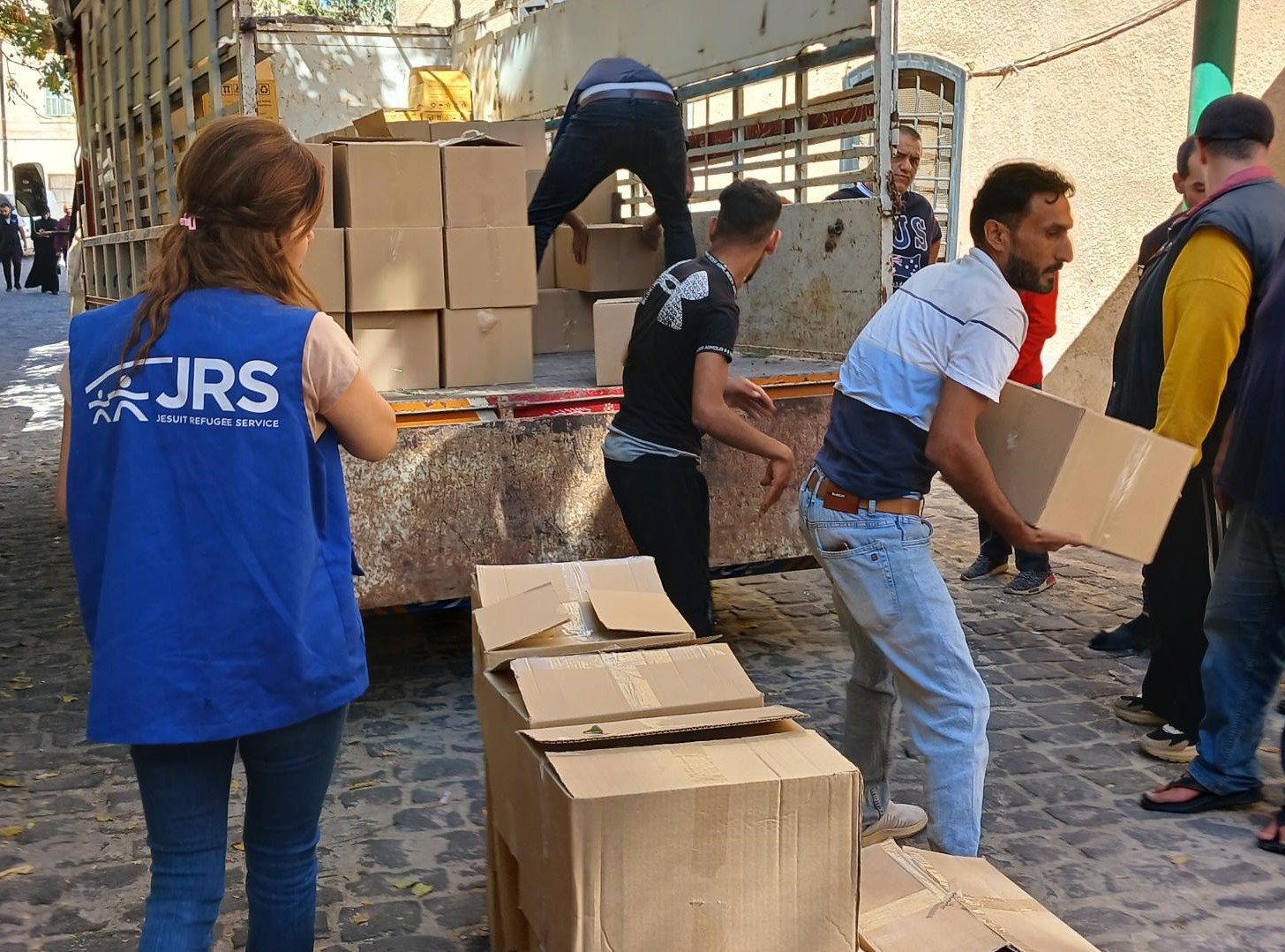Religion News Service: ‘Millions will die,’ Catholic humanitarian organizations warn, if halt in US aid continues
13 February 2025|Religion News Service
(RNS) — As the Trump administration put a 90-day hold on foreign aid payments in order to look for what it termed wasteful spending, leaders of Catholic aid groups are warning that even short delays will result in the deaths among aid recipients, as well as breaks in significant help being offered Sudanese threatened by famine, unaccompanied Ethopian refugee children, and Yazidis and Christians in Iraq.
“It’s a complete stop. Millions of people will die, and hundreds of millions more will suffer,” said Alistair Dutton, secretary general of Caritas Internationalis, a federation of Catholic aid groups with 162 member organizations around the world.
U.S. government funding made up 40% of all global humanitarian aid tracked by the United Nations in 2024, and Catholic organizations play a major role in running programs funded by that aid.
Catholic Relief Services, a U.S. member of Caritas Internationalis, is the top recipient of funds from the U.S. Agency for International Development, or USAID, which Elon Musk’s Department of Government Efficiency has largely dismantled. More than half of CRS’ revenue and support came from the U.S. government in 2023.
Dutton explained that the U.S. government is also a major funder of United Nations’ humanitarian agencies that distribute funding and food to nonprofits, including other members of Caritas Internationalis.
In the absence of U.S. aid, Caritas is trying to maintain services by tapping reserves, Dutton said.
Kelly Ryan, president of Jesuit Refugee Service/USA, which has programs in nine countries that are funded by the State Department’s Bureau of Population, Refugees, and Migrants, told RNS that the funding freeze had affected more than 100,000 refugees and forcibly displaced people directly and 400,000 more indirectly. The State Department’s funding represents about 60% of the organization’s cash flow.
The work stoppage is impacting the organization’s ability to provide medical care, food, care for orphans and unaccompanied minors and subsistence jobs for teachers in refugee camps.
Despite hope that European countries might step up to fill the gap, “there’s a real danger that other governments say, ‘Well, if they can walk away, so can we,’ and that actually people start copying what’s been done,” Dutton said.
Ryan said that JRS/USA offices have tried “ to scramble to find ways to keep those programs going because we really believe in them and the mission of accompaniment, so we don’t want to just leave people behind.”
Ryan said that there has long been bipartisan support for their work that “ is important for advancing U.S. interests of having peace and security.” Despite funding halt, she said, “ I hope that sentiment will carry the day.”
On Jan. 28, Rubio announced in a memo an exemption for “lifesaving” humanitarian assistance, defined as medicine, medical treatments, food and shelter and costs required to deliver the critical aid. But Dutton said that his members have struggled to get answers from their contacts about exactly what the exemption covers to avoid incurring liabilities that members can’t assume.
Ryan said that while the State Department had prompted JRS/USA to apply for the exemptions, she called the process “not exactly transparent.”
Speaking on Tuesday (Feb. 11), Ryan, who previously worked at State and other executive branch agencies, said the department is “working very hard” to grant the waivers, but on Wednesday, The New York Times reported that the exemptions for life-saving aid had been put on hold.
The White House’s criticism of USAID has focused on its alleged support for diversity, equity and inclusion programs, though many of the programs cited as DEI by the White House were actually awarded by a different office in the State Department.
Caritas members actively work to include women and girls and disabled people, Dutton said. “If that’s diversity and inclusion, then it would be a very sad world if we lose that. And that’s deeply part of the way Caritas views all people, particularly those who are poorest and most vulnerable.”
Including everybody is “a deeply Christian value,” he added.
“In most places of the world, (DEI) is about how everybody in a village has equal access to participate, that they receive what they need on the basis of what they need, and not whether they can fight to get to the front of the queue,” Dutton said.
JRS/USA is also asking Catholics to reach out to their representatives, as well as appealing to previous donors to dig in and give more and asking new donors to support their work as they face the gap.
Dutton said Caritas Internationalis is hoping it can get through to the administration and others in Washington the severity of the crisis the funding halt has caused. He is working with member organizations to assemble a more complete picture of specific impacts.
“It will be a question of how we reflect this back to the new U.S. administration and appeal to their better natures so that they review the decision and take seriously their prior commitment to help those who are the poorest and most in need in the world,” he said.
RNS Vatican reporter Claire Giangravè contributed to this report.



